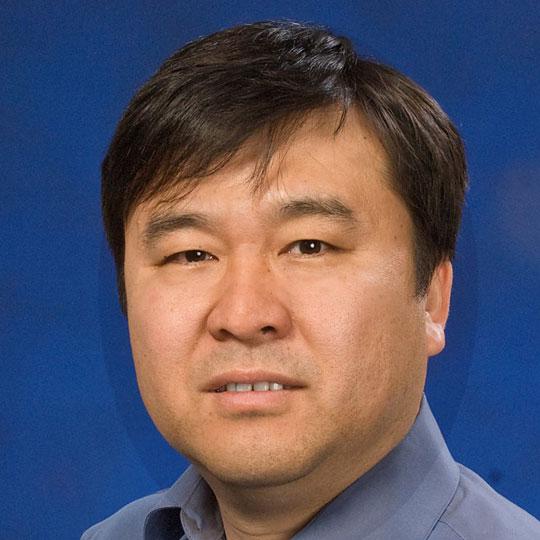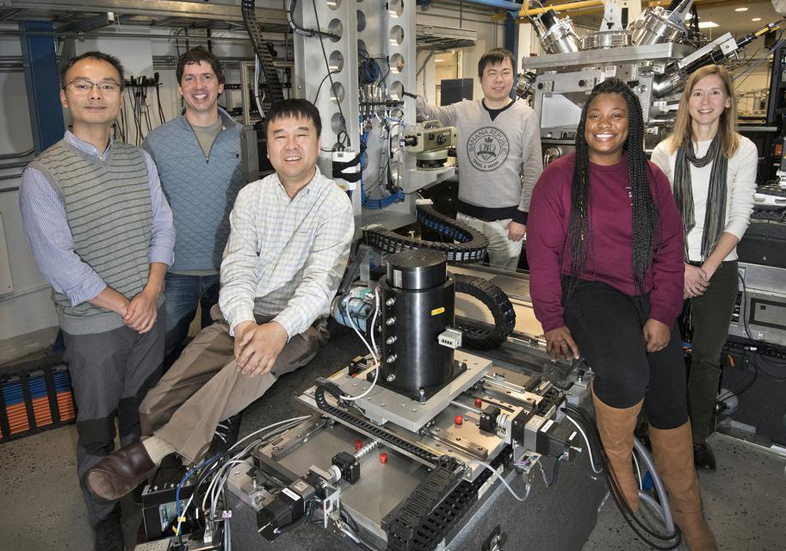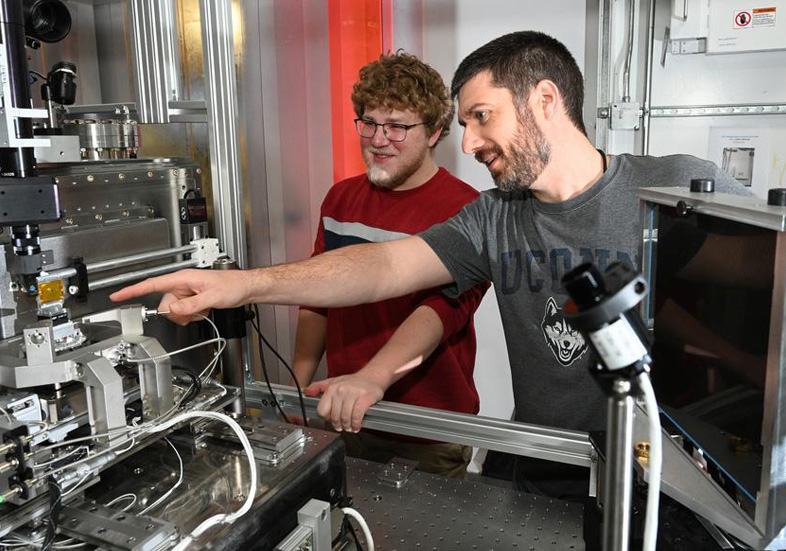
Imaging and quantifying the morphology, structure, chemistry, elemental variations, and strain distribution of materials
The Imaging and Microscopy Program at Brookhaven Lab's National Synchrotron Light Source II (NSLS-II) offers specialized tools for imaging and characterizing heterogeneous materials in both 2-D and 3-D. The program provides a suite of imaging techniques, which can be paired with spectroscopic analysis to study features ranging from the millimeter to nanometer regime. The program's scientific focus is highly diverse, and includes studies on nanomaterials, energy conversion, biological structures, and climate science.
Program Beamlines
Hard X-ray Nanoprobe
The HXN beamline offers scientists a highly advanced suite of analytical tools for imaging and characterizing complex materials at the nanoscale. HXN provides world-leading spatial resolution, unique detection capabilities, and analytical tools that allow scientists to study the structural, elemental, chemical, and crystalline properties of their samples with an unprecedented level of detail.
Submicron Resolution X-ray Spectroscopy
The SRX beamline provides world-leading x-rays for studying complex, natural, and engineered systems using advanced imaging and spectroscopy techniques with sub-micron spatial resolution. The expertise of the SRX staff is aligned with the beamline's diverse user community, which ranges from environmental and life sciences to materials science and energy conversion.
Coherent Diffraction Imaging
The extremely high spectral brightness of NSLS-II offers perfect conditions for novel imaging techniques such as coherent diffraction imaging. The Imaging and Microscopy Program is currently developing a beamline using this novel approach to reveal structures in 3-D at extremely high spatial resolution.
Full Field X-ray Imaging
The FXI beamline offers advanced capabilities for studying the morphology and oxidation states of dynamic systems in 2-D and 3-D. FXI is specialized in in situ and operando studies of energy storage devices, as well as environmental, biological, and materials science samples.
Advanced Nanoscale Imaging
Tender X-ray Nanoprobe
The Advanced Nanoscale Imaging (ANI) and Tender X-ray Nanoprobe (TXN) beamlines are designed to deliver optimized photon flux with ultimate beam stability for imaging applications. ANI will provide both monochromatic and polychromatic illuminations whereas TXN will focus on a wide tender energy range. Both beamlines will enable high-throughput and high-resolution imaging emphasizing in-situ/operando compatibilities, providing structural, elemental, chemical and strain characterizations over a wide range of sample systems, including microelectronics, energy storage, and environmental science.
Soft X-ray Nanoprobe
The Soft X-ray Nanoprobe (SXN) beamline provides advanced nano-imaging and spectroscopy with high photon flux (250–2500 eV). It enables element analysis from carbon to sulfur and beyond. SXN supports STXM for 2D/3D imaging and ptychography for sub-10 nm resolution. It serves diverse fields, including catalysis, condensed matter physics, and environmental science.
Imaging & Microscopy News
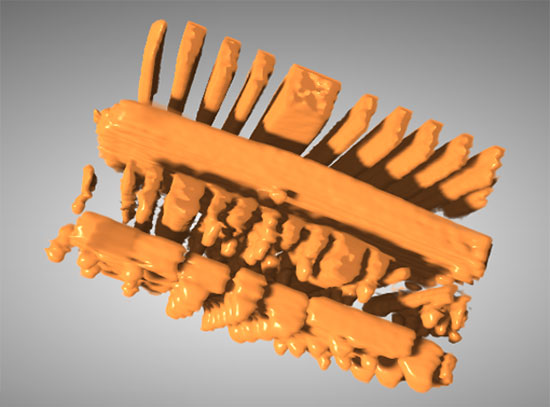
Novel AI Method Sharpens 3D X-ray Vision
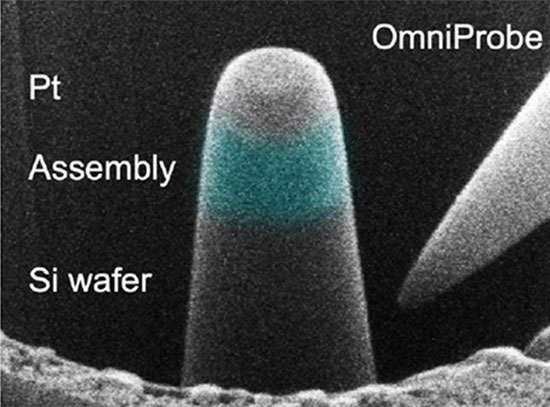
Patchy Nanoparticles by Atomic Stenciling

Destination: Mars. First Stop: Iceland?

Biologists Engineer Larger, Tougher Crops for Fuel, Bioproducts
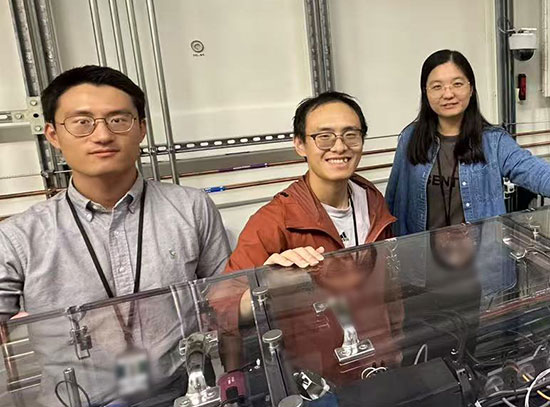
Collaborative Team from Virginia Tech, George Mason University, and Brookhaven National Laboratory Wins Top Awarding in 4-VA
Our Partners
Synchrotron Catalysis Consortium
This partner user group is led by principle investigators from Brookhaven National Laboratory, Columbia University and Stony Brook University. Their mission is to cultivate, support and educate the catalysis user community through partnerships with the TES and QAS beamlines. The SCC provides user support for catalysis users, and collaborates with NSLS-II to develop in situ capabilities for both beamlines.




